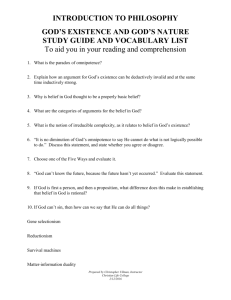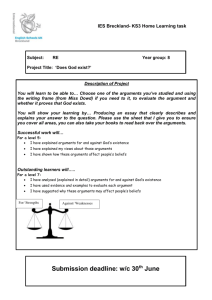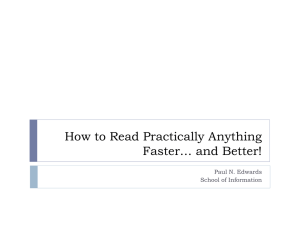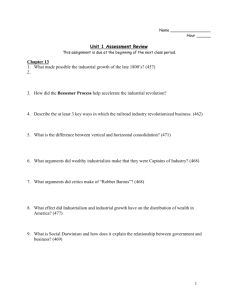Suffolk Community College Department of Philosophy
advertisement
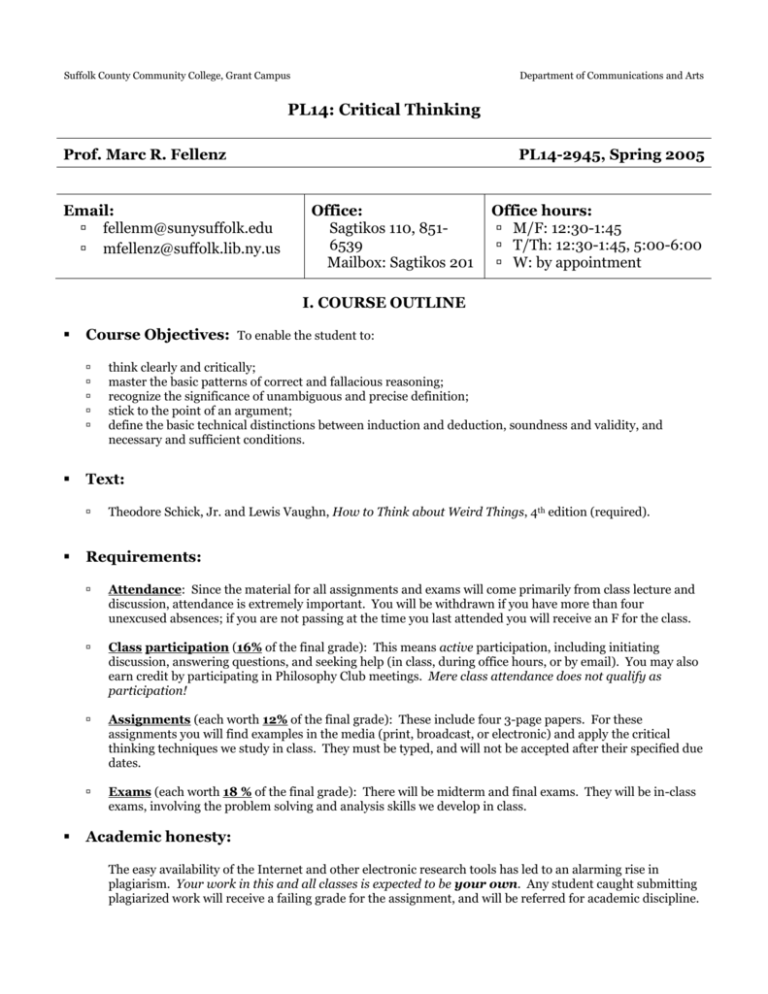
Suffolk County Community College, Grant Campus Department of Communications and Arts PL14: Critical Thinking Prof. Marc R. Fellenz Email: fellenm@sunysuffolk.edu mfellenz@suffolk.lib.ny.us PL14-2945, Spring 2005 Office: Sagtikos 110, 8516539 Mailbox: Sagtikos 201 Office hours: M/F: 12:30-1:45 T/Th: 12:30-1:45, 5:00-6:00 W: by appointment I. COURSE OUTLINE Course Objectives: To enable the student to: Text: think clearly and critically; master the basic patterns of correct and fallacious reasoning; recognize the significance of unambiguous and precise definition; stick to the point of an argument; define the basic technical distinctions between induction and deduction, soundness and validity, and necessary and sufficient conditions. Theodore Schick, Jr. and Lewis Vaughn, How to Think about Weird Things, 4th edition (required). Requirements: Attendance: Since the material for all assignments and exams will come primarily from class lecture and discussion, attendance is extremely important. You will be withdrawn if you have more than four unexcused absences; if you are not passing at the time you last attended you will receive an F for the class. Class participation (16% of the final grade): This means active participation, including initiating discussion, answering questions, and seeking help (in class, during office hours, or by email). You may also earn credit by participating in Philosophy Club meetings. Mere class attendance does not qualify as participation! Assignments (each worth 12% of the final grade): These include four 3-page papers. For these assignments you will find examples in the media (print, broadcast, or electronic) and apply the critical thinking techniques we study in class. They must be typed, and will not be accepted after their specified due dates. Exams (each worth 18 % of the final grade): There will be midterm and final exams. They will be in-class exams, involving the problem solving and analysis skills we develop in class. Academic honesty: The easy availability of the Internet and other electronic research tools has led to an alarming rise in plagiarism. Your work in this and all classes is expected to be your own. Any student caught submitting plagiarized work will receive a failing grade for the assignment, and will be referred for academic discipline. PL14-2945 Spring 2005 SYLLABUS Dates Topic Reading 1/24-1/31 Introduction: The nature of thinking and critical thinking. Belief, Chapters 1, 5 2/4-2/14 Chapter 2, 4, 5 opinion, and knowledge. Subjectivity vs. objectivity; belief vs. truth. Correct opinion and rationally justified belief. Verification and inference. The ethics of belief. Truth: What does it mean to say that something is "true"? Epistemology and its link to other areas of philosophy. Correspondence, coherence, and pragmatic theories of truth. Skepticism, solipsism, and relativism. Assignment #1 handed out 2/14. 2/18-, 3/7 Evidence: Evaluating individual statements. Personal experience and the criteria for proper observation. Appeals to the authority of others and the conditions of expertise. Evaluating the media and other sources of information. Assignment #1 due 3/4. Assignment #2 handed out 3/7. 2/21 Chapters 3, 5 No class. 3/11-3/21 Arguments: Argument structure: Identifying premises, conclusions, Chapter 6 and background information. Inductive and deductive inference. Evaluating the reasonableness of arguments: Validity, strength, and soundness. Assignment #2 due 3/21. Assignment #3 handed out 3/21. 3/29-3/31 No class 4/4 Review. 4/8 Midterm exam 4/11-4/18 Informal Fallacies: Argument forms employing false, irrelevant, or Chapter 6 inadequate premises: Ad hominem, slippery slope, straw man arguments. Assignment #3 due 4/18. 4/22-5/2 Explanations: Distinguishing explanations from arguments. Evaluating scientific explanations. Causal arguments and Mill's methods. Explanation of “paranormal” phenomena. Assignment #4 handed out 5/2. 5/6-5/13 Justifications and moral reasoning: Distinguishing justifications, arguments, and explanations. Descriptive vs. prescriptive language. Evaluative reasoning and contemporary issues. Deontology and consequentialism. Assignment #4 due 5/13. 5/16 Review. 5/17 Final exam Chapter 7, 8

